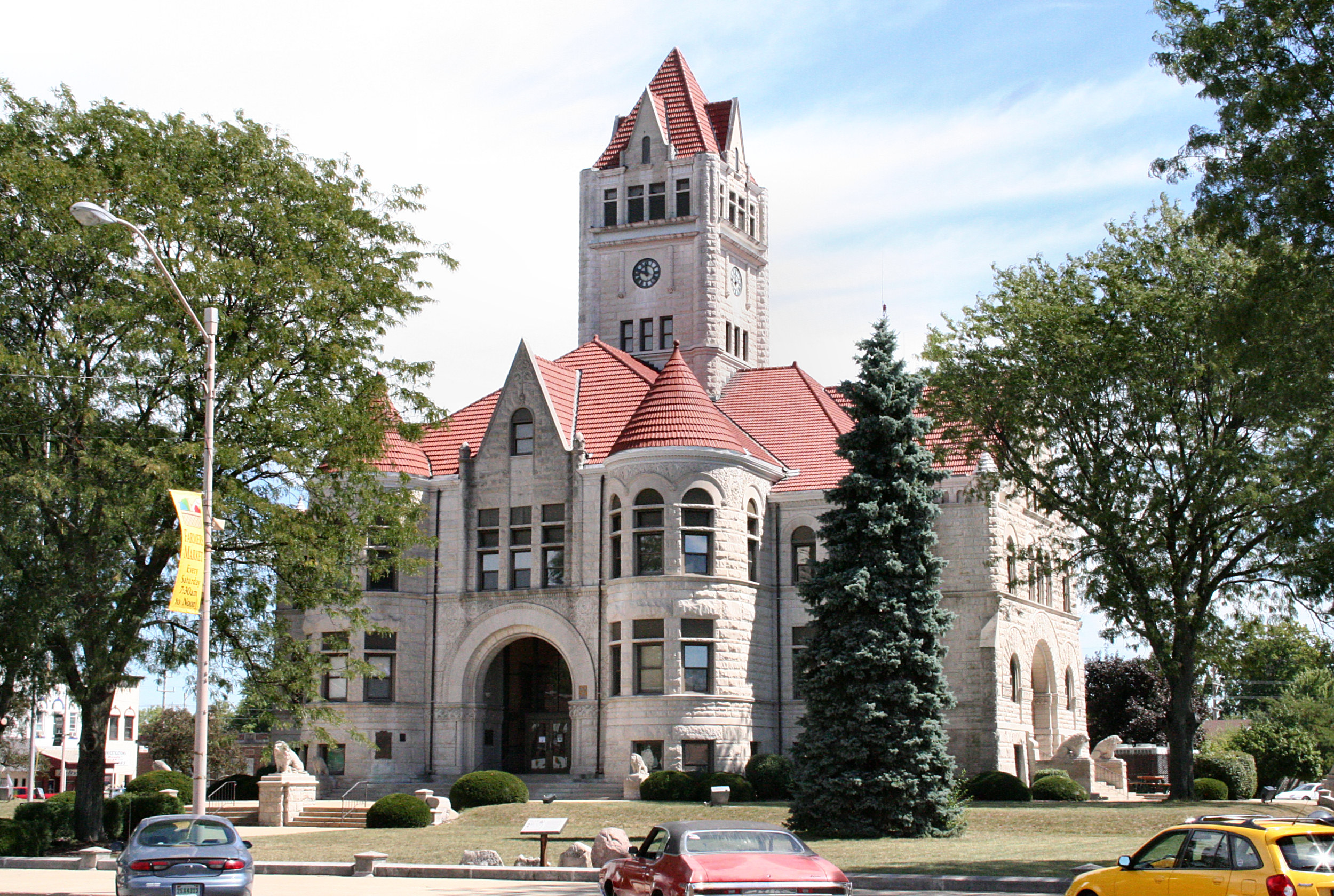- Rochester Downtown Historic District
Infobox_nrhp | name =Fulton County Courthouse
nrhp_type =

caption = Fulton County Courthouse
location=Rochester, Indiana
lat_degrees = 41
lat_minutes = 4
lat_seconds = 24
lat_direction = N
long_degrees = 86
long_minutes = 13
long_seconds = 30
long_direction = W
locmapin = Indiana
area =
built =1895
architect= Rush A.W. & Son; Gibson, J.P.
architecture= Romanesque
added =September 22 ,2000
governing_body = Local
refnum=00001138cite web|url=http://www.nr.nps.gov/|title=National Register Information System|date=2008-04-15|work=National Register of Historic Places|publisher=National Park Service]The Rochester Downtown Historic District is a district on the
National Register of Historic Places inRochester, Indiana ,United States . It was placed on the Register on June 24, 2008, [ [http://www.nps.gov/history/nr/listings/20080703.HTM National Register of Historic Places Listings ] ] following an open public vote. [ [http://www.rochsent.com/main.asp?SectionID=89&SubSectionID=316&ArticleID=4212&TM=25968.48 Denied:1up! Software ] ] The majority of buildings in the area aremasonry andItalianate while structures outside the district are largely residential frame built structures.Rochester was founded as a
trading post in1831 between the European settlers and local Native Americans, along the old Michigan Road where it intersected Mill Creek. Most of the contributing buildings lie along the old Michigan Road, now Main Street, in a right-of-way pattern (the newer, non-contributing buildings do not follow this pattern).http://www.in.gov/dnr/files/hp_rochester.pdf]Prominent buildings in the district include the
Richardsonian Romanesque Fulton County Courthouse, awater tower , Rochester City Hall & Fire Department, post office, and telephone company.The limestone courthouse, which was already on the National Register as of September 22, 2000, is located on Ninth Street. Four different memorials are on its grounds: one for the Pottawatomies'
Trail of Death , a cornerstone for the Rochester College, and two war memorials. Although most of the buildings in the district are constructed of brick, after the construction of the courthouse, with its rusticated limestone construction, it is believed that other buildings were renovated to match the courthouse using faux stone that was cemented to their brick structures; theMasonic Temple is reflective of this. Limestone is also used on the name blocks of buildings. The historic fire department has an engraved limestone name block above its door. The city hall not only has a similar limestone name block, but the right and left bays of the hall have limestone diamonds above them.References
Wikimedia Foundation. 2010.
